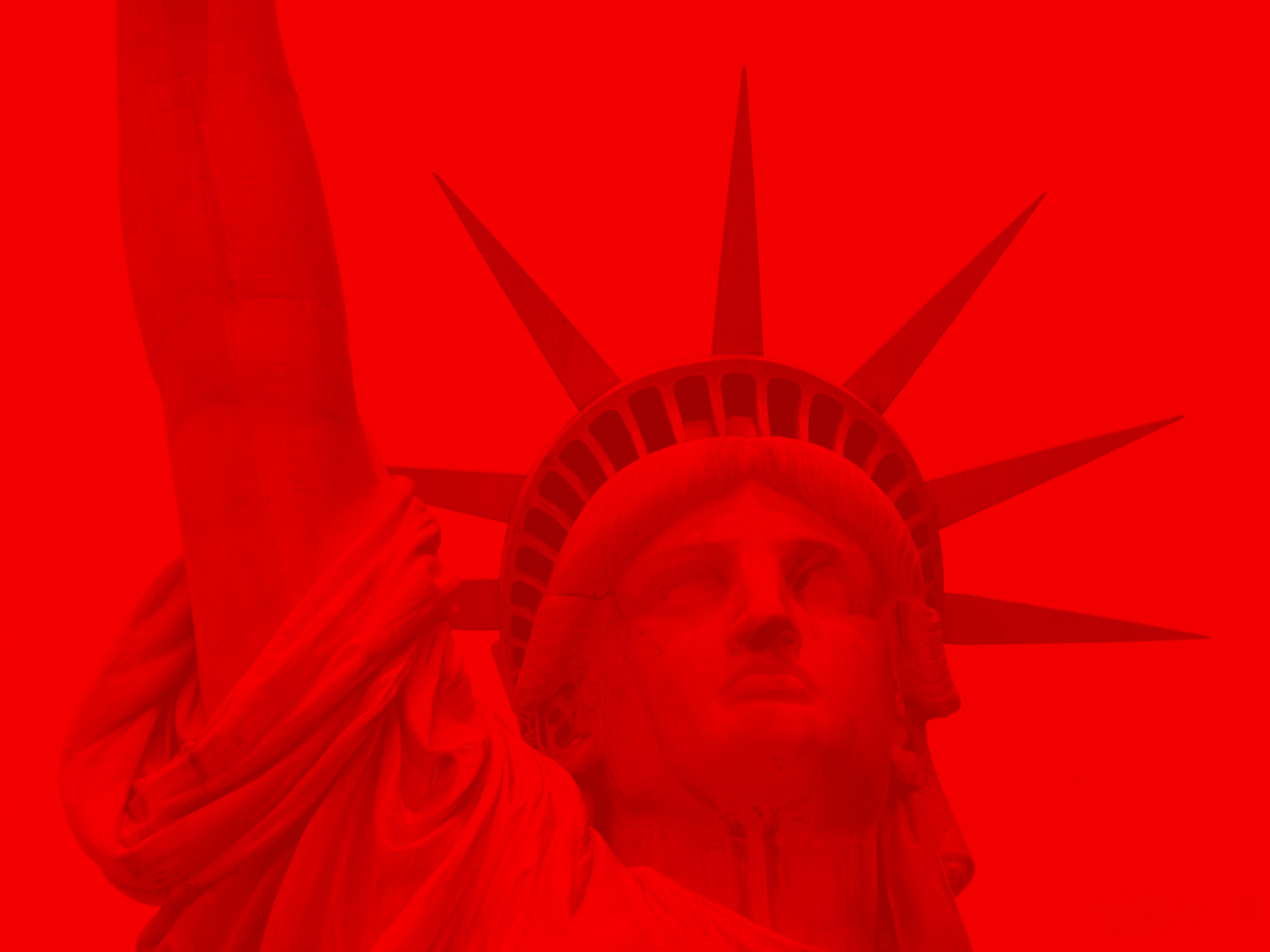On 14 September, Tompson and Aydemir strolled through the streets of Belgravia, still energized by the scene at London’s Unite the Kingdom rally on 13 September. They shared how for the first time in years, ordinary citizens - long overlooked or silenced - had flooded the streets in their thousands. The sense of empowerment was palpable: people had come to speak, to demand change, and to make sure their voices could no longer be ignored.
A Christian Revival
What stood out was the rally’s distinctly Christian character. Crosses were lifted, pastors spoke, and chants of “Christ is King” filled Trafalgar Square. On one of the great lions beneath Nelson’s Column, a man held a cross high - an image that captured the essence of the day: faith displayed openly, without shame.
Aydemir, a former Muslim, reflected on the moment. In much of the West, Christianity has often been subdued while other identities dominate public life. Yesterday, people were affirming their faith without apology. For him, seeing a formerly silenced identity stand proudly in public was “the kind of pride we’ve been missing.”
Flags, too, were everywhere, a visual assertion of national identity. For years, people have been told not to wave flags or be proud of their heritage. Yesterday, that restraint was gone.
Breaking the Overton Window
Long taboo topics including immigration, national pride, and cultural identity were now openly discussed. Fringe ideas that many had only whispered privately were brought onto the stage. Politicians and grassroots activists alike spoke, showing that the range of acceptable public debate was shifting.
Tompson noted that, for a long time, minorities or outsiders often had to speak on behalf of Europeans who felt unable to voice their opinions. At the rally, however, native Europeans were stepping forward themselves, speaking freely and asserting their views without fear of stigma or shame.
We Are the Media
The rally also highlighted how ordinary citizens are now the storytellers. Millions reportedly tuned in online, while thousands more documented and shared their own footage in real time. Figures like Tommy Robinson, once sidelined and mocked, now stood alongside major European leaders, with their voices amplified not by traditional media, but by the public itself. “We are the media now,” the crowd was reminded, a mantra that captured the shift in power.
The men noted that the mainstream media could no longer ignore what was happening. Coverage was inevitable, and the narrative was now shaped from below.
A New Era?
Walking past Belgravia’s elegant streets, Tompson and Aydemir reflect on the significance. Faith, identity, and common sense are visible once more. The day was more than a rally: it was a movement. People were reclaiming not just their voice, but the freedom to speak openly, to affirm their values, and to take pride in who they are.
For both, the message is clear: ordinary citizens are no longer content to be silent observers. Flags are waving. Crosses are raised. And a new conversation about faith, identity, and freedom is underway.


